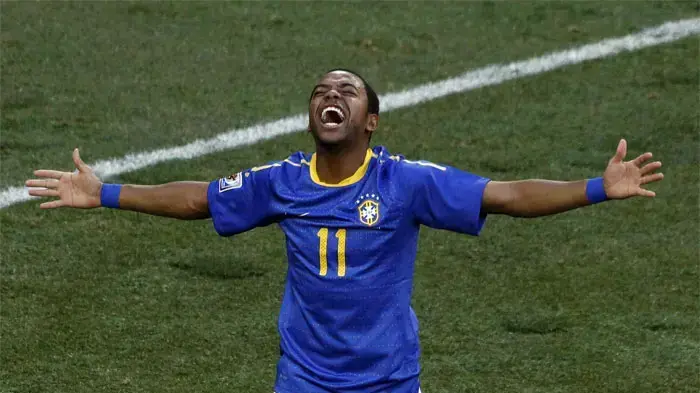Football has always been very aware of its enormous political power, to the same extent that governments have been, in particular those with the greatest democratic deficiencies.
Hence the carefulness with which FIFA has historically dosed its rewards and punishments, and also the insistence of regimes of all kinds to procure the emotional coverage of soccer fervours.
That is why the forcefulness and promptness with which FIFA has excluded Russia is strange.
Disputes over football favors are old.
Already Franco, with the civil war underway, maneuvered so that FIFA recognized the coup side the legitimacy of its Spanish federation against the Republican one.
However, his first major political-strategic decision came years later, after the Second World War.
Neither Germany nor Japan participated in the World Cup in Brazil in 1950. The German federation was dissolved in 1945 and that same year the Japanese was suspended.
Italy, on the other hand, did attend, and defended the title achieved in 1938 in France.
With Mussolini dead, the country had aligned itself with the victors of the war.
Soccer leaders have always wanted to show that they were not used to satisfy political interests, except for operations with substantial economic returns.
But they have tried to avoid small moves, like when Poland refused to play against Russia these days.
It already happened to Spain in the first European Championship, in 1960. The draw for the quarterfinals paired it with the USSR: first leg in Moscow and return leg in Madrid.
But Franco was uncomfortable that the Soviets played in Spain and proposed playing both games in Moscow, or the second leg on neutral territory, or both games in a neutral place.
The USSR refused and Spain was left out of the competition.
At that time, South Africa's exclusion from the 1966 World Cup in England began to take shape.
He started the African Football Confederation, which in 1960 expelled them due to apartheid.
FIFA followed suit a year later, although they were reinstated in 1963, when they promised to send an all-white team to the 1966 World Cup and another all-black team from the 1970 team. They rectified and again excluded South Africa.
Until 1992.
As with Spain in 1960, FIFA did not give in to the USSR in 1973 when they refused to play the qualification for the 1974 World Cup in Chile. They preferred to provoke one of the most grotesque moments in the history of sport.
The Chilean team traveled to Moscow for the first leg of the tie on September 26, just 15 days after Pinochet's coup (0-0).
FIFA ignored the objections of the USSR to play the return leg in November at the National Stadium in Santiago, which was already operating as a clandestine torture center.
The Soviets did not travel to Chile, but FIFA forced the locals to open the field, which was attended by thousands of people, and to stage a goal.
Without an opponent, the Chileans took from the center and their captain, Francisco Valdés, scored in the empty goal of a ghost rival.
More tension surrounded the World Cup in Spain in 1982, which began on June 13, with a Belgium-Argentina (1-0) and the Malvinas war still underway.
The Argentines surrendered the next day, and on June 17 Leopoldo Galtieri, the military dictator who started the conflict, resigned.
The Argentines arrived in Spain thinking that they controlled the war.
The blow was huge.
Passarella, the captain, regretted it for years: "I shouldn't have played in the 1982 World Cup. In Malvinas many boys died and I, as captain, should have done something so that we didn't get on the field."
The previous weeks, Margaret Thatcher weighed with her cabinet the option of ordering England, Scotland and Northern Ireland to withdraw from the tournament.
But they were worried about disturbing Spain, because of tourism and because the Government of Felipe González had announced the opening of the Gibraltar Gate to pedestrians for a few weeks later, thirteen years after Franco closed the passage to La Línea with it.
The execution of the announcement took a few months, until the night of December 14 to 15, when in a scene of the first day of sales at El Corte Inglés, according to the chronicle of EL PAÍS, "Francisco Romo Martín, a 52-year-old man from La Lina , was the first to pass from the Rock, ahead of Carmen Worb at the last moment, while bottles of champagne were uncorked and a prickly pear livened up the historic event”.
Although the decision to keep the British teams in the World Cup had more to do with possible propaganda readings: Thatcher feared that it would be seen as a victory for Argentina.
Another war, that of the Balkans, interfered in the 1992 European Championship. On May 30, eleven days before the opening match, the UN agreed to a blockade of Yugoslavia that included sports.
The president of FIFA, Sepp Blatter, announced the next day that his team was out of the European Championship and the qualification for the 1994 World Cup, although the decision made him uncomfortable: "I don't think politics should be mixed with sport.
They are totally different things,” he said.
Totally different things that have been intimately entangled for decades by the formidable power of football.
You can follow EL PAÍS DEPORTES on
and
, or sign up here to receive
our weekly newsletter
.
Exclusive content for subscribers
read without limits
subscribe
I'm already a subscriber















